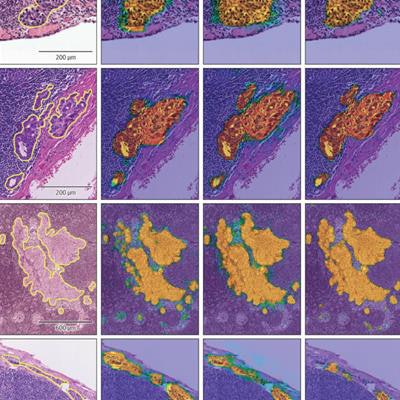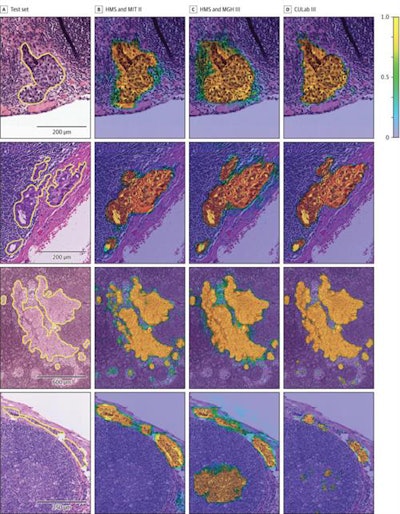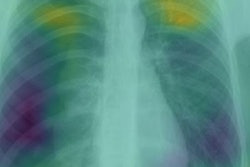
Computer algorithms analyzing pathology slides can detect the spread of cancer to lymph nodes in women with breast cancer as well as or better than pathologists, according to a new study published online December 12 in the Journal of the American Medical Association.
In 2016, researchers competed in an international contest called the Cancer Metastases in Lymph Nodes Challenge (CAMELYON16) to develop computer algorithms to detect the spread of breast cancer by analyzing tissue slides of sentinel lymph nodes. A group led by Babak Ehteshami Bejnordi of Radboud University Medical Center in Nijmegen, the Netherlands, analyzed the competition results, comparing the performance of 32 algorithms with the performance of a panel of 11 pathologists.
Bejnordi and colleagues used the area under the receiver operating characteristic curve (AUC) to compare the algorithms and the pathologists. They found that some computer algorithms were better than pathologists at detecting cancer spread in an exercise that mimicked routine pathology workflow, while others were as good as an expert pathologist in interpreting images without any time constraints.
 Images of lymph node tissue sections used to test the ability of the deep-learning algorithms to detect cancer metastasis. Image courtesy of JAMA
Images of lymph node tissue sections used to test the ability of the deep-learning algorithms to detect cancer metastasis. Image courtesy of JAMA"The CAMELYON16 challenge demonstrated that some deep-learning algorithms were able to achieve a better AUC than a panel of 11 pathologists ... for detection of lymph node metastases of breast cancer," Bejnordi and colleagues wrote. "To our knowledge, this is the first study that shows that interpretation of pathology images can be performed by deep-learning algorithms at an accuracy level that rivals human performance."



















